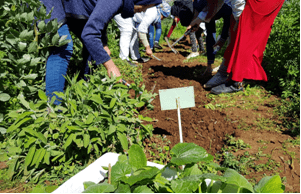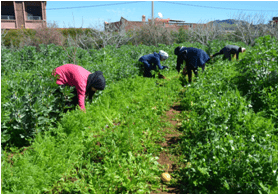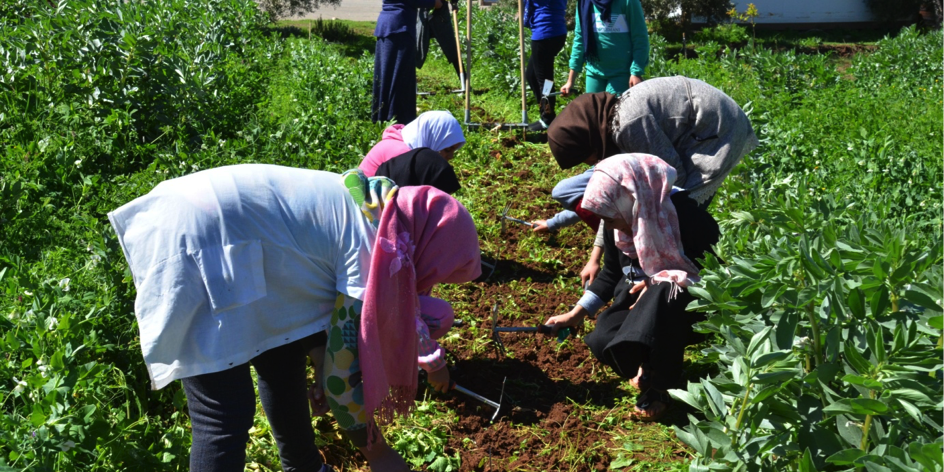Source : RESING
“IMPROVING LIVELIHOODS AND PROTECTING WATERSHEDS THROUGH EFFICIENT IRRIGATION IN THE HIGH ATLAS OF MOROCCO”
An integrated project with multiple impacts on the communities of the High Atlas
Chronic water management problems in many High Atlas communities have far-reaching impacts: they constitute an important limit on agricultural production, contributing to poverty, inequalities, and economic migration. By reducing water availability for vulnerable ecological areas surrounding the communities, agricultural water mismanagement also compounds the pressure on the local ecosystem exerted by overharvesting of valuable plant species, overgrazing by livestock in vulnerable ecosystems and climate change, amongst others. Increasingly dry springs and summers compound this problem because water for these irrigation systems comes from rainfall as well as from the surrounding streams and torrents. For the same reason, this inefficiency also impacts the surrounding fragile ecosystem, which depends on adequate water flows. Through the implementation of efficient irrigation projects for smallholder parcels and for community nurseries, where economically and ecologically important species are grown for sale and enrichment planting, this project addressed 3 core interdependent elements in this complex feedback loop: inefficient water management, poverty, and ecological erosion.
The key problem addressed by this project implemented by RESING in partnership with MBLA is irrigation inefficiency, particularly in community nurseries and smallholder parcels. Significant water leakage 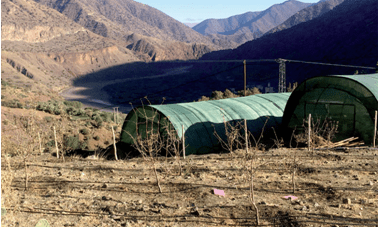 and loss result from poorly maintained and earth irrigation canals (seguias) and water collection basins, reducing agricultural output. Overall, the project rehabilitated about 1.7 km of seguias in Imegdal and AitM’Hamed communes andconstructed a storage basin with a total capacity of 400m3 in Imegdalbeneficiating nearly 180 families.
and loss result from poorly maintained and earth irrigation canals (seguias) and water collection basins, reducing agricultural output. Overall, the project rehabilitated about 1.7 km of seguias in Imegdal and AitM’Hamed communes andconstructed a storage basin with a total capacity of 400m3 in Imegdalbeneficiating nearly 180 families.
Thanks to the project, the community nursery of Imegdal operates now with a state-of-the-art drip irrigation system ensuring year round irrigation to the nursery. It also helped distribute more than 2000 aromatic and medicinal plants to the local smallholders. The parcels smallholders’ knowledge and capacities were enhanced through trainings in water economy, irrigation techniques, community-based post-harvest processing, value-adding and marketing of their produce.
The infrastructure implemented by the project in Imegdale and AitM’hamedwill ensure more efficient irrigation and longer irrigation seasons which will result in enhanced crop yields and incomesfor parcels smallholders, through the cultivation and sale of high value medicinal and aromatic plants.If duplicated in surrounding communities, high value medicinal and aromatic plant populations in the wild will be more abundant as a result of enrichment planting and increased water flows, thus allowing a more sustainable harvest of these wild populations.
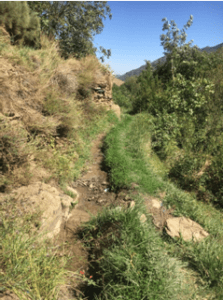
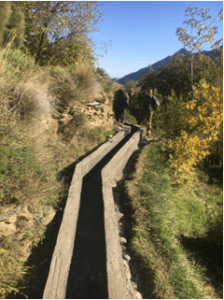
RAIN funding also allowed the establishment of a permaculture garden and associated state-of-the-art irrigation system in the Dar Taliba girls’ boarding house training center of the Ourika valley. The integrated permaculture garden includes a native species nursery featuring medicinal and aromatic plants. The nursery was established in collaboration with a local association and 3 surrounding communes, which all benefit from the plants grown therein and from training and skills enhancements. As part of the process, the implementing partners trained a group of keen female students in nursery and irrigation management and permaculture techniques. Dar Taliba girls received important trainings to enhance their economic prospects once they leave school and to support more ecologically sensitive agricultural and irrigation techniques in their home communities.
